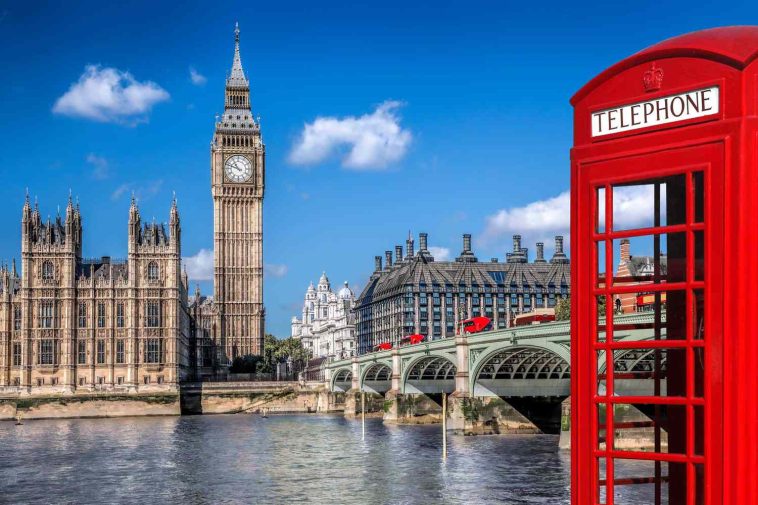Introduction.
Starting an Airbnb business can be an exciting and rewarding venture. With the rise in flexible travel and the UK being such a popular destination for both domestic and international visitors, there’s never been a better time to explore the opportunity.
But where do you begin? What are the rules? And how can you stand out in a competitive market?
In this guide, I’ll walk you through the essential steps to get started, share tips for success, and address some common questions along the way.
Why Airbnb is a Great Opportunity in the UK
The UK’s tourism industry is thriving. In 2022, over 39 million people visited the UK, contributing nearly £73 billion to the economy.
Airbnb has become a go-to platform for travellers seeking unique, flexible, and affordable accommodations. For hosts, it’s a fantastic way to earn extra income or even create a full-time business.
Some reasons why it’s worth considering:
- Demand is high: Travelers often look for authentic, local experiences, and Airbnb offers that personal touch.
- Flexibility: You can rent out your space when it suits you, whether it’s just weekends or all year round.
- Low barriers to entry: You don’t need to own a fancy property or spend a fortune to get started.
How Do I Start an Airbnb Business In The UK?
Here’s a breakdown of what you need to do to kick off your Airbnb journey in the UK:
1. Research Local Regulations
Rules for short-term rentals vary depending on where you live. For example:
- In London, properties can only be rented out for up to 90 nights a year without special permissions.
- In other cities, you might need to check with your local council about planning permissions or licensing requirements.
Make sure you’re clear on what’s allowed in your area before listing your property.
2. Choose the Right Space
Your space doesn’t need to be extravagant, but it should be clean, comfortable, and welcoming. It could be:
- A spare room in your home.
- A holiday property you already own.
- A flat or house purchased specifically for Airbnb (be mindful of mortgage terms or lease restrictions).
3. Prepare Your Property
Guests love places that are clean, stylish, and well-equipped. Here are some tips:
- Invest in quality basics: Comfortable bedding, clean towels, and reliable Wi-Fi are must-haves.
- Add personal touches: A few thoughtful details like fresh flowers, a welcome note, or local guidebooks can make a big impression.
- Safety first: Install smoke detectors, and carbon monoxide alarms, and ensure your property complies with fire safety regulations.
4. Set Up Your Listing
Your Airbnb listing is your shop window, so make it shine:
- Photos matter: Use bright, high-quality images. If photography isn’t your strong suit, consider hiring a pro.
- Write a clear description: Highlight what makes your space unique and include details like nearby attractions or public transport links.
- Price it right: Check out similar listings in your area to get an idea of what to charge. You can adjust prices based on demand, like raising rates during holidays or events.
5. Register for Taxes
In the UK, Airbnb income is taxable. Here’s what you should know:
- If you earn less than £7,500 a year from renting out a room in your home, the Rent-a-Room Scheme means you won’t pay tax on that income.
- For other properties, you’ll need to register with HMRC and report your earnings as part of your self-assessment tax return.
Consult an accountant or financial advisor if you’re unsure about your tax obligations.
6. Provide Excellent Hospitality
Good reviews are the backbone of a successful Airbnb business. To ensure happy guests:
- Respond to messages quickly.
- Be clear about check-in and check-out procedures.
- Go the extra mile by offering local tips or a small welcome gift.
Tips for Standing Out
The Airbnb market can be competitive, so think about how you can make your property unique:
- Offer extras: Free parking, breakfast items, or access to a garden can make a difference.
- Target a niche: Cater to specific travellers, like families, remote workers, or pet owners.
- Keep improving: Pay attention to guest feedback and make adjustments to your space or listing over time.
FAQs
Do I need insurance for my Airbnb property?
Yes, it’s a good idea to have insurance that covers short-term rentals. Airbnb offers a Host Guarantee and liability insurance, but you should also look into specialist cover for added peace of mind.
Can I run an Airbnb from a rented property?
You can, but you’ll need permission from your landlord. Check your tenancy agreement to ensure short-term letting is allowed.
How much can I earn from Airbnb in the UK?
Earnings vary widely depending on location, property size, and demand. For example, a one-bedroom flat in London could earn £1,500+ a month, while a spare room in a smaller town might bring in £300–£500.
What if something goes wrong with a guest?
Airbnb has systems in place to handle disputes, damage claims, and cancellations. Clear communication and a thorough house guide can also prevent misunderstandings.
Further Resources
- Airbnb UK Help Centre – Official resources for hosts.
- UK Government Guidance on Short-Term Lets – Find local rules and regulations.
- Rent-a-Room Scheme Details – Tax benefits for hosting in your primary residence.
Ready to Get Started?
Starting an Airbnb business in the UK takes planning and effort, but it can also be incredibly rewarding.
From understanding local rules to creating an unforgettable guest experience, each step gets you closer to running a successful venture.
What’s your next move? Would you start with your own home or invest in a dedicated property?





GIPHY App Key not set. Please check settings